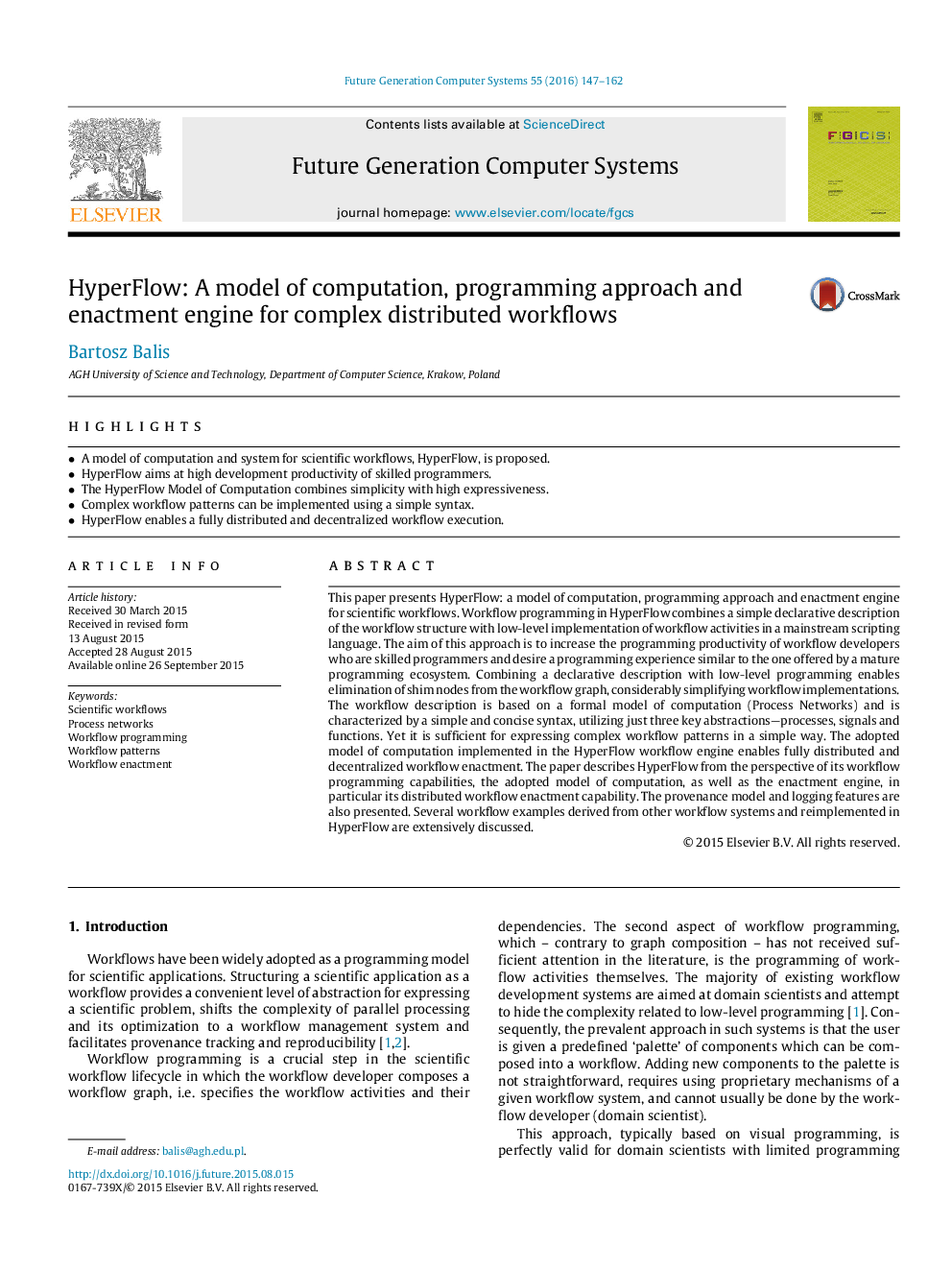| Article ID | Journal | Published Year | Pages | File Type |
|---|---|---|---|---|
| 425565 | Future Generation Computer Systems | 2016 | 16 Pages |
•A model of computation and system for scientific workflows, HyperFlow, is proposed.•HyperFlow aims at high development productivity of skilled programmers.•The HyperFlow Model of Computation combines simplicity with high expressiveness.•Complex workflow patterns can be implemented using a simple syntax.•HyperFlow enables a fully distributed and decentralized workflow execution.
This paper presents HyperFlow: a model of computation, programming approach and enactment engine for scientific workflows. Workflow programming in HyperFlow combines a simple declarative description of the workflow structure with low-level implementation of workflow activities in a mainstream scripting language. The aim of this approach is to increase the programming productivity of workflow developers who are skilled programmers and desire a programming experience similar to the one offered by a mature programming ecosystem. Combining a declarative description with low-level programming enables elimination of shim nodes from the workflow graph, considerably simplifying workflow implementations. The workflow description is based on a formal model of computation (Process Networks) and is characterized by a simple and concise syntax, utilizing just three key abstractions—processes, signals and functions. Yet it is sufficient for expressing complex workflow patterns in a simple way. The adopted model of computation implemented in the HyperFlow workflow engine enables fully distributed and decentralized workflow enactment. The paper describes HyperFlow from the perspective of its workflow programming capabilities, the adopted model of computation, as well as the enactment engine, in particular its distributed workflow enactment capability. The provenance model and logging features are also presented. Several workflow examples derived from other workflow systems and reimplemented in HyperFlow are extensively discussed.
